
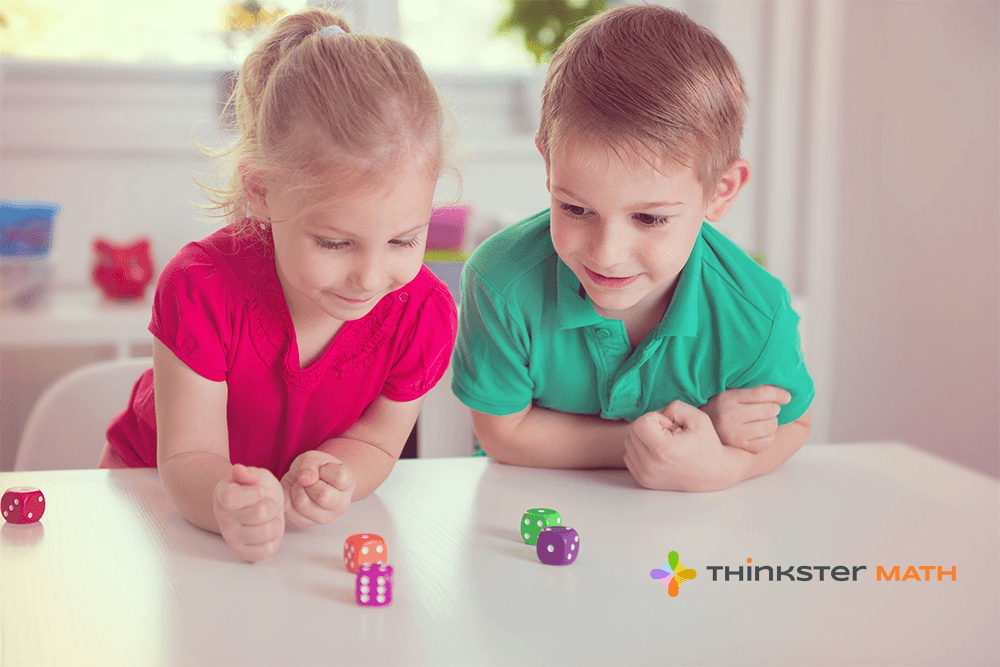
Last Updated on September 20, 2022
can help your progress in their – no matter their age, current level, or set.
Whether it’s or a , each comes with different benefits to helping your child make improvements.
To help accelerate improvements, you can also work with your to supplement what they are with their .
games are a great way to supplement what they are ! Not only can they help your child practice different concepts, but it’s a way for your child to have fun while !
With digital devices everywhere, it can seem like people don’t play as many games as they used to. But there are plenty of games that incorporate math — either directly or subtly — that are easy to set up and play.
Moreover, these games can help with things like strategic thinking, problem-solving, and fluency, giving students a chance to apply what they have learned to different contexts and show that they can explain and discuss math concepts with their peers.
According to an article from WUSF, research about how students master facts showed that mathematical games and other similar experiences have more power than drills and timed tests. “Appropriate mathematical activities are essential building blocks to develop mathematically proficient students who demonstrate computational fluency (Van de Walle and Lovin, Teaching Student-Centered Mathematics Grades K–3, p. 94),” the article continues.
Games can provide a number of other benefits to your student, as well.
Join our team of elite math tutors today! With Thinkster, provide enhanced learning outcomes for students with our data-driven and AI-based training.
Apply Now >>
A big issue that math teachers and tutors have to deal with is that students don’t see math work as fun. They may not enjoy solving math word problems or math worksheets, so they don’t want to do the work. They also may not seek out additional math problems to complete, which can be detrimental when you need them to get to better understand .
So, one of the most important reasons to consider playing games for math is the fun factor. If your student enjoys the games and can start to see math in a fun way, this can help them greatly moving forward.
We all know that we’re more likely to put more effort into things we enjoy, and the same is true for our kids. When you turn math homework into a game or play non-math games that use math skills, your student may have so much fun that they don’t even realize they are learning. This can spur them on to seek out other math games or even come to see that regular math work really isn’t that bad.
But why is this? Why are games so effective when it comes to learning?
For one, the chemicals that are released in the brain while having fun — including dopamine and endorphins — actually enhance learning. Dopamine is released when the brain engages in something novel or exciting, activating the “reward center.” The more excited we are about a certain activity, the more dopamine is released, and the more we’ll want to repeat the activity in the future.
So if you can activate the release of these chemicals while learning math at the same time, the chances of retaining the information are much better — and, even better, your child will want to do it again and again!
Also, optimal brain activation occurs when you’re in a positive emotional state. Neuroimaging studies have shown that a student’s comfort level can influence the transmission and storage of information in the brain. Stress, boredom, confusion, and low motivation can all interfere with learning.
And if humor is incorporated, even better. One study found that students could recall a lecture more easily when the instructor added in jokes.
Finally, games give your student additional practice without doing the same thing over and over. We know that repetition is important to truly master a math skill, and games can be just enough math work to keep them regularly practicing and learning these skills.
Playing certain games can also give your student a chance to think through a problem differently and approach it with a new perspective.
If your student is tired of repeating math problems and the numbers are starting to blur, a game that uses math can be a great way to give your student’s brain something different to focus on.
It may even take them a minute to realize they are doing math, but this can be just enough new insight to help them break past a barrier if they are stuck.
There may be that they learn or finally understand through a game that will stick with them because of the connection they made due to a positive memory. This can have a major impact on how they learn down the road and what they remember.
Games that directly or subtly incorporate math concepts can certainly support your child’s understanding of the subject. And these types of games can also teach or enhance other skills that will benefit your student in the long run.
For example, some games help students develop critical and creative thinking skills, while others help with concentration, memory, and hand-eye coordination. Games can also help students learn problem-solving skills and practice their verbal skills.
Moreover, games are a great way to spend time interacting with family and friends. Team games help them see teamwork first-hand and develop leadership skills, as well as the ability to work well with others and to listen to the opinions of others.
These important skills will come into play as your child gets older, takes harder subjects (like Chemistry, Physics, Calculus, or Trigonometry), goes to college, and then enters the workforce.
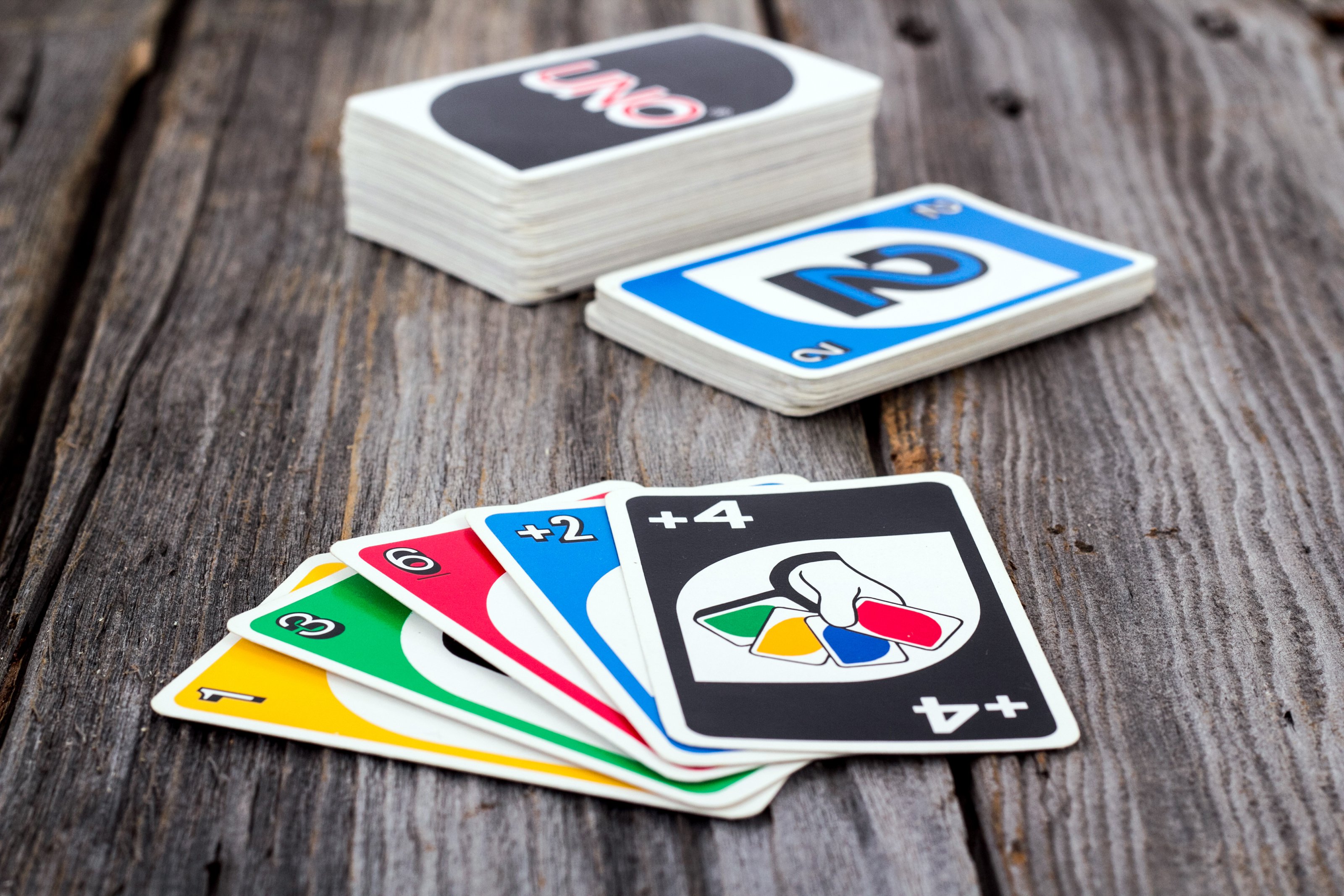
Card games are a great way to teach your while having fun. Card games can help your learn and practice critical and strategic thinking skills. They help your child with – such as number recognition, counting, and probability.
You can let your student keep score during the game for an extra layer of math practice. Keeping score gives them practice in counting, addition/subtraction, and recognizing which numbers are larger. Depending on the age of your child, this is a great way to reinforce basic math skills — addition and subtraction specifically — that they will need as they progress through harder math concepts.
Try a game of Crazy Eights or Uno for number games that require matching skills.
You can even use a more specific math card game, such as multiplication flash cards. This can be turned into a speed drill or a competition against siblings.

Yahtzee is a game that uses five dice, and players try to get certain number combinations for different scores. There are 13 categories, such as three of a kind, four of a kind, full house, etc. — similar to Poker — and players can only count each category one time. During each turn, players roll the dice up to three times to try to fit into a category they still need points for. The goal is to try to get points in all 13 categories, but this is not always possible.
Yahtzee can be played to help with counting and scorekeeping, while also teaching a level of strategy. For more advanced math students, it can be used to discuss probability due to the rolling of the dice and the number combinations needed to score points.
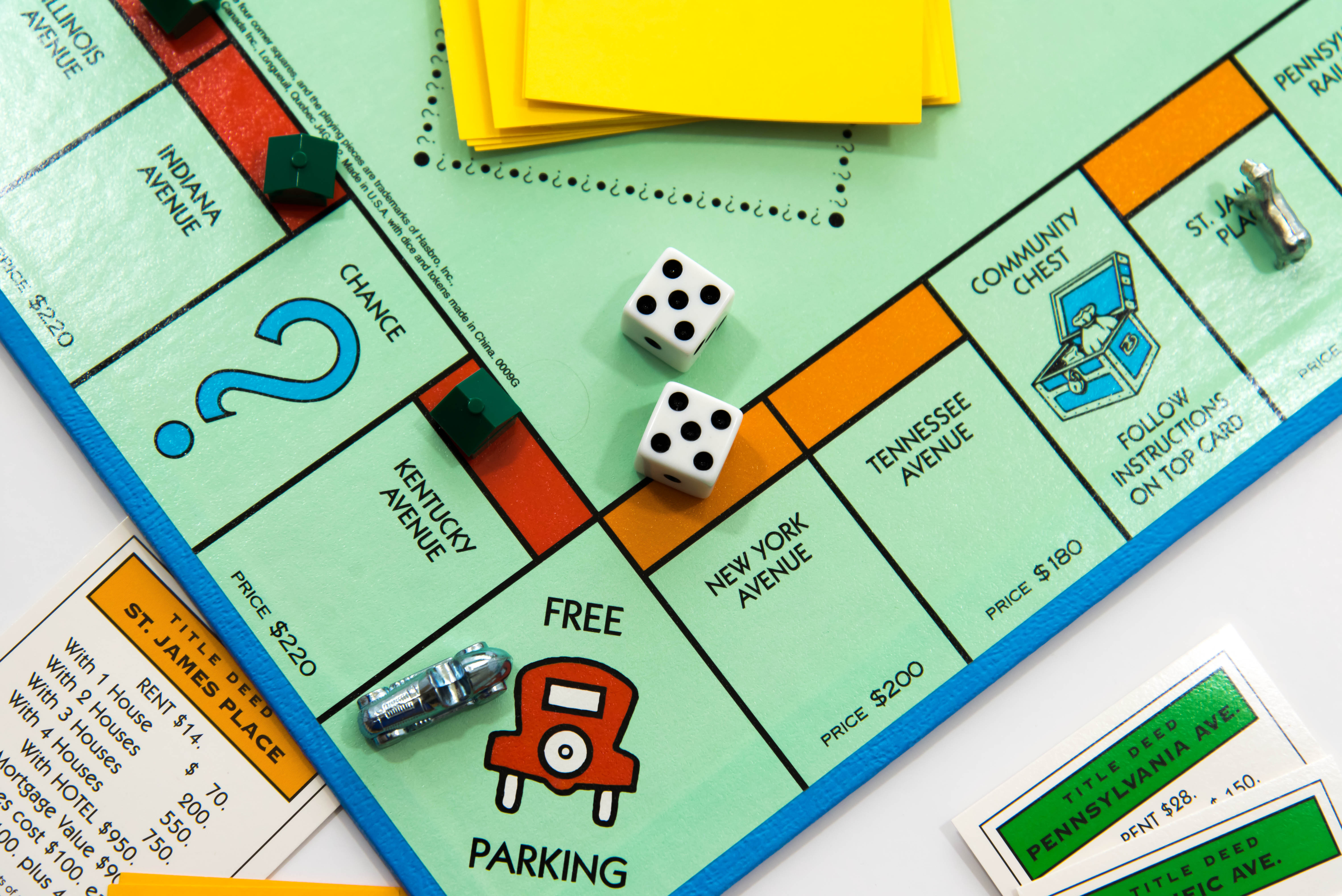
Monopoly is a great game to teach your students math skills. Similar to Yahtzee, this classic board game will help with counting, addition, and probability.
For older students, Monopoly is a great way to learn about how to spend money wisely. This is a beneficial skill for when they have to do this in the real world. You can also take this a step further and begin to discuss property value, taxes, investments, and even supply and demand as the game progresses and houses become scarce. Through all of these ideas, you can help your student develop a strategy for when to spend money and when not to — which is an important life lesson as they get older!
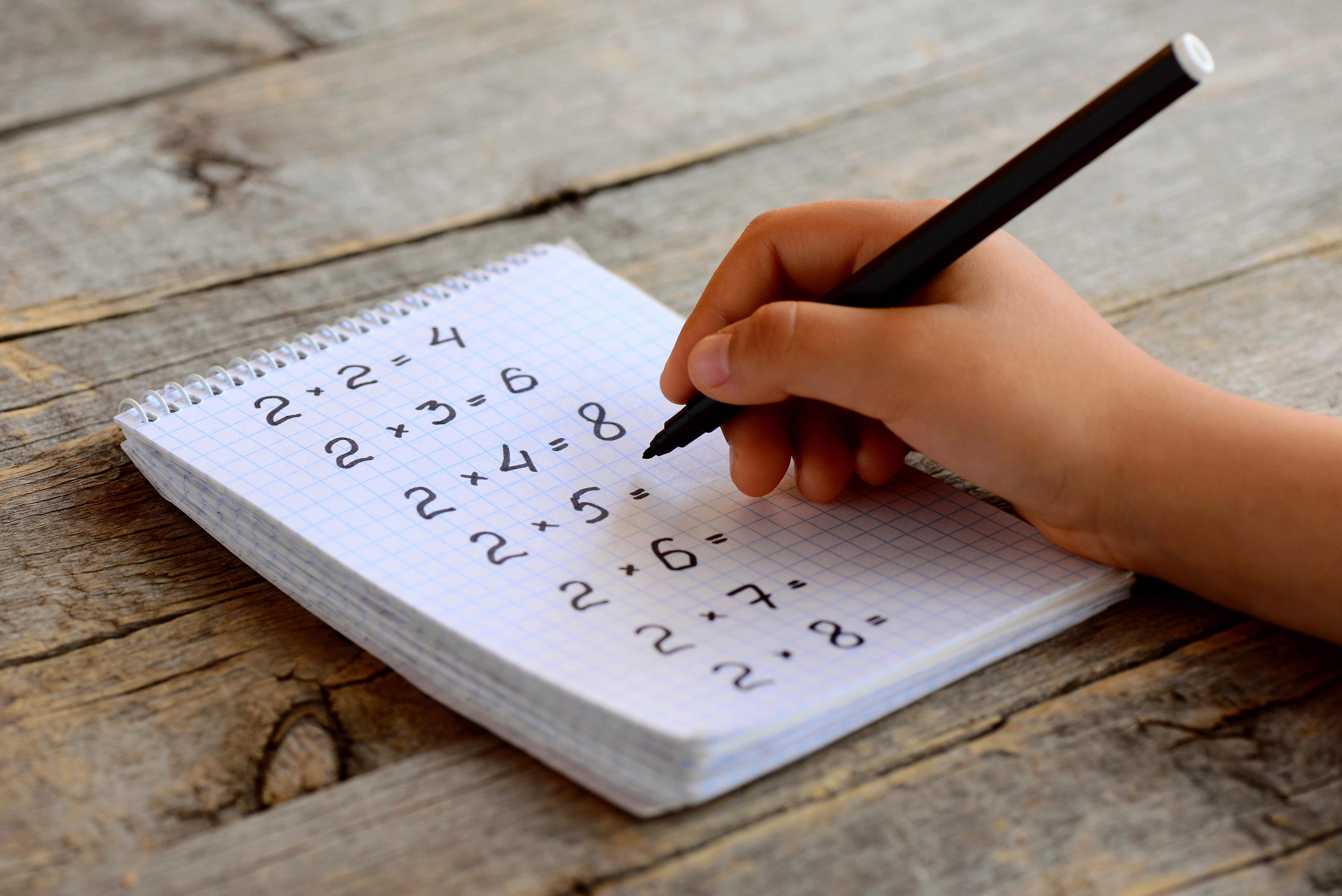
When your student feels comfortable with a topic, you can reinforce this knowledge by turning existing math work into drills or speed trials. You can create these easily from math worksheets or problems you already have, or by using a deck of flashcards.
Try taking a worksheet from Thinkster’s collection, and give your student a time limit to complete it. The timeframe should be challenging, but not so fast that your student will panic and get frustrated. If your student finishes with a certain percentage correct, give them a prize or keep track of regular completions for an overall prize. It can be fun to track their progress on a leaderboard, using stars or other symbols so they can see how well they are doing visually.
If you have flashcards on hand, you can set a timeframe — two minutes, for example — and see how many they can answer correctly. Or, set a goal for the number of correct answers given, and keep track of the time it takes. Don’t forget a reward or prize!
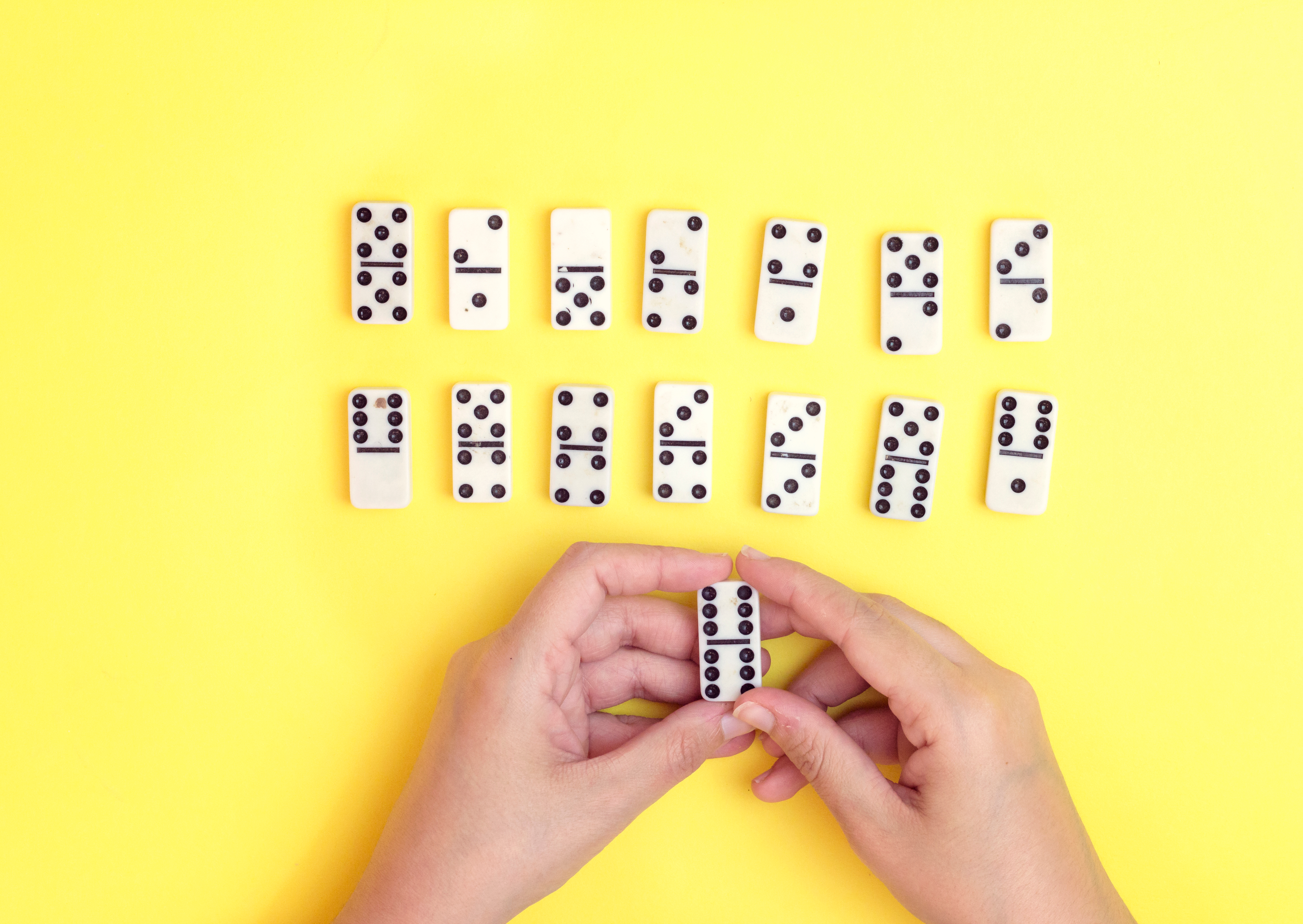
Dominoes is all about matching numbers and can teach your student problem-solving, strategy, and probability.
To play dominoes, the tiles are placed face-down and each player draws seven for their hand. One tile is turned over in the center of the playing board and players take turns adding dominoes that match the existing number on the first tile. Once a tile is played, only that end is available to match, unless it is a double tile with the same number on both ends. If you can’t match a domino, you pass your turn. The goal is to play all of your tiles first, but this can only be done by matching the numbers of the dominos that are already on the board.
The game gets tricky as you use more of your dominoes. There is a level of strategy needed to decide when to use a double tile or save them for later plays, as well as understanding how your play will affect the next person’s turn.

If you’re planning a road trip this summer, this article from Maths Insider shares a number of math games for car trips.
One easy game is to count the number of cars you see of a specific color. For older students or car enthusiasts, you can have them count certain makes or models of cars rather than colors.
Another idea for a great math game on the road is to have your student add up the numbers on license plates that you see. For more advanced students, you can ask them to multiply/divide the numbers or turn them into fractions.
While the games above are great to add to your routine, don’t forget the benefits of an if your child is struggling to keep up (or simply wants to get ahead).
If you’re looking for to help your child, you can try Thinkster risk-free.
Thinkster provides a full-fledged platform (driven by AI, behavioral, and data science), as well as supplemental , help, , and more. Our Parent Insights App allows you to monitor your ‘s work and improvements at any time.
An elite, and system work together to help your go beyond just – we want them to master it.
Learn more about our curriculum and teaching style here.
Or, if you are a tutor, learn more about Thinkster’s math tutor jobs.


